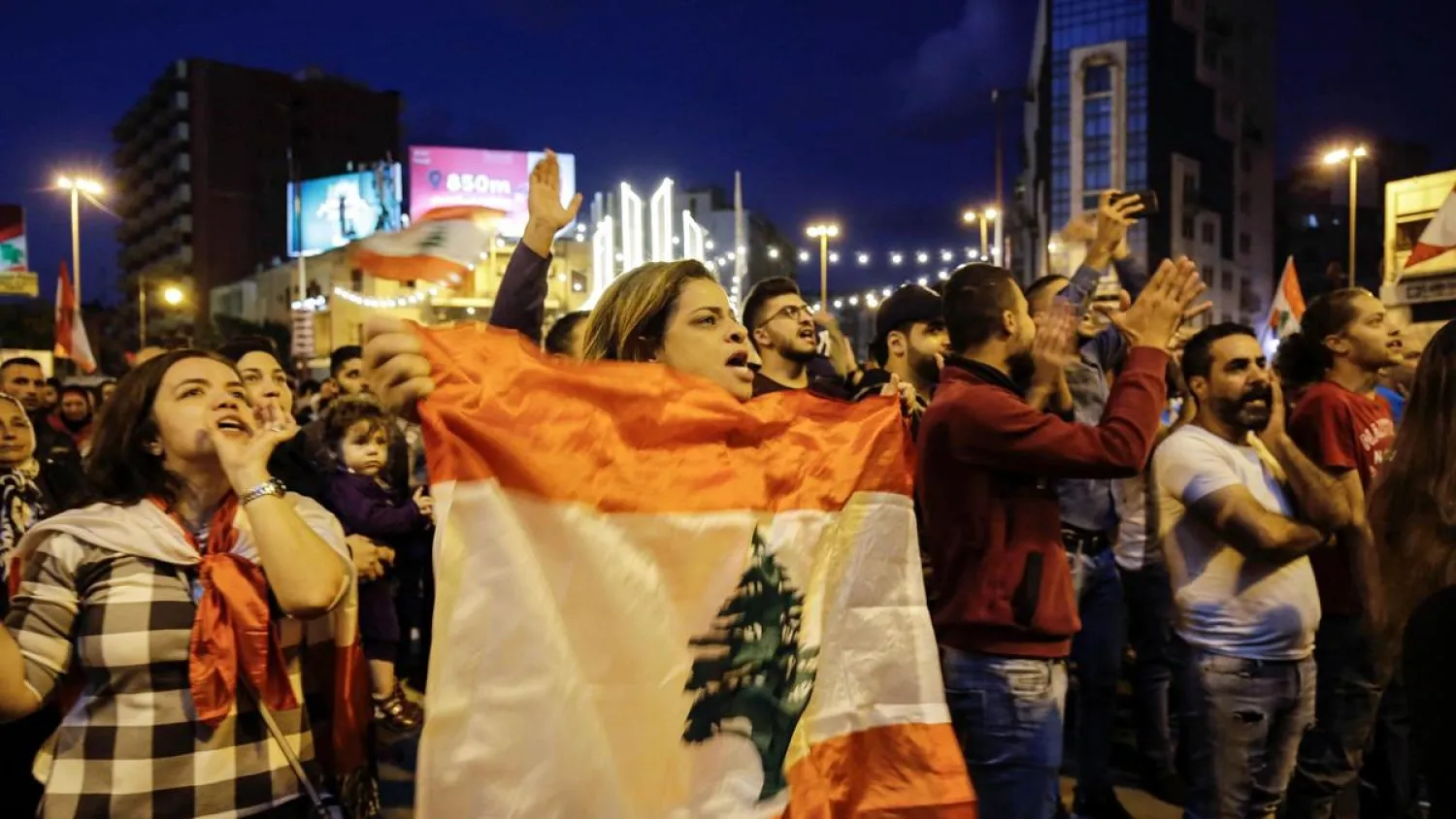In a dusty alley streaked with sewage in Lebanon's northern port city of Tripoli, Fatima, her husband and 11 children live crippled by debt and wondering where their next meal is coming from.
"We're a poor people here in Tripoli," said the 38-year-old mother, in the city that has taken center stage in Lebanon's ongoing protests denouncing official corruption and inequality.
Fresh laundry hangs outside her two-room breeze-block dwelling, its corrugated iron roof held in place by the weight of a few old car tires.
"There have been days in the past week when my children haven't had breakfast -- and my little one’s milk -- before five o'clock in the evening," said Fatima, whose youngest is just two and a half years old.
Her husband sells fish from a cart for a living, and Fatima sometimes helps out with special orders to cook up the fresh catch, said AFP.
But sales have been few and far between since the unprecedented demonstrations erupted nationwide last month, demanding a complete overhaul of the political system.
Tripoli has been a hotspot of the anti-government protests and become known as "the bride of the revolution" for its festive night-time rallies.
In the beginning Fatima took part, but soon the bus fare to the city's main square became too much.
"I stopped going, to spend the money instead on bread and milk for my children," she said.
More than half of Tripoli's population live at or below the poverty line, the United Nations says, and more than a quarter live in extreme poverty.
Fatima's family are struggling to pay the bills and already up to $5,000 in debt.
Her 17-year-old son has left school so he can help provide for the family, and so has her 15-year-old daughter, who must now look after her siblings.
The mother fears her other children may soon have to drop out too, because she can't afford the $100 a month for the school bus.
Life 'sweeping stairs'
In a city whose political leaders are among the richest in the nation, Fatima is terrified her children will grow up to a life "sweeping stairs and peddling chewing gum".
Forbes magazine this year listed former prime minister Najib Mikati and his brother, who both hail from the city, as being worth $2.5 billion.
But in Fatima's neighborhood, dozens of families live in tiny homes without even a connection to the main sewage system.
Instead, they have dug small cesspits they cannot afford to empty, and whose foul-smelling contents often leak out into the alleyways or even inside their homes.
One woman, aged in her 50s, has placed cement blocks outside her front door to try to protect her 10-year-old autistic son from the wastewater and rats outside.
"If a political leader's dog gets sick, they rush it off to private hospital, but we can't even treat our children," she said, as around her the scent of fried food mixed with the stench of a blocked toilet.
"They come and see us during elections, and then they forget all about us afterwards," she said, preferring not to give her name.
'Kiss 100 hands'
Not far off, Jamal Shaaban said he had resorted to collecting scrap metal to earn money and feed his seven children, and despaired as to how he would ever find them employment.
Without personal connections, "I can't find my kids jobs even as porters" in the city's neglected port, said the 40-year-old, wearing a black cap and sunglasses.
"I need to kiss a hundred hands -- even for a job as a rubbish collector," he said angrily.
Tripoli is now known as a protest center, but from 2007 to 2014 it was infamous for deadly shootouts and bombings.
With school dropout rates and unemployment high in its poorer districts, many young residents have joined armed groups in exchange for a little financial support.
They have also been easy recruits for extremist groups.
"What other future do they expect for a generation brought up in a neighborhood like this?" Shaaban said.
"Some people take a wrong turn. But who's to blame -- us or the living conditions?"
Several kilometers (miles) away, in a neighborhood pockmarked with bullets holes, Amina Abdallah Sweid said she was struggling to feed her five children after their father was killed in the clashes.
In the past few days, she said they had been living off a single bag of potatoes donated by a relative and some bread from the neighbors.
Her children sometimes collect scrap metal to sell, but even on a good day that only fetches around six dollars.
That means, she said, that "there's nothing left for us to do but beg".














